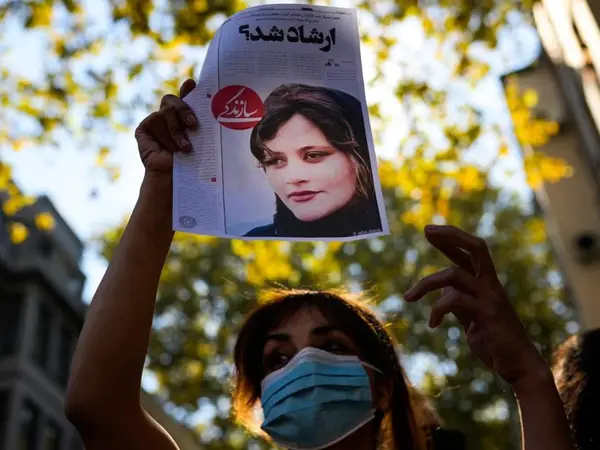After two weeks of protests and uprising in Iran, the country's media and politicians are beginning to know one of the key players fighting for change.
Iran's Generation Z is a generation like no other. The country's ruthless security forces realized this as soon as they set foot in the streets that have been turned into battlefields. They seem to be the first generation of Iranians who not only stand face to face with the security forces, but they also fight back after every attack.
They do not mind hitting and kicking policemen and militia that shoot at them often at point blank range. And they have no respect whatsoever, for the teachings and favorite lifestyle of the Islamic Republic and its clerics. They want one thing: Change; most notably a regime change.
In an article on the conservative news website Nameh News, the website's editor Mosrtafa Sadeghi wrote that "The Iranian government can neither completely suppress this new generation, nor it can ignore them." Sadeghi noted that ignoring the Generation Z will only lead to their radicalization.
He is probably right. It was the first time after 43 years that Iran's security forces in Qom were attacked by Molotov Cocktails.
According to Sadeghi those who are carrying out the ongoing uprising are neither like the working class that revolted in 2017, nor like the Middle Class that mourned for the victims of the downing of a Ukrainian airliner in 2020. They are a new generation that has baffled politicians and security forces alike. Sadeghi further said: "They are neither left nor right winger. They are rebels. They are the children of social media who have staged a rebellion against the country's decision-makers and traditional media they no longer trust. Instead, they turn to foreign-based media."
"They follow a different lifestyle, spend time at cafes and take long walks with friends while discussing cultural issues. At the same time, they want to know why so many restrictions have been imposed on them," Sadeghi wrote. The ruling clerics wish to dictate their own lifestyle upon them, but they won't take it.
Like Sadeghi, Mahmoud Vaezi, the former Chief of Staff of ex-President Hassan Rouhani, suggests that "the government should try to understand this new generation and listen to their demands." He said in an interview on Thursday, that what is happening these days in Iran is far more violent than the protests in 2019, when security forces killed at least 1,500 protesters. But like hardliner officials of the current government, Vaezi warned that no one should be allowed to take advantage of the protests and destroy public property.
In a symbolic gesture that reveals a bit of what the new generation is looking for, a video on social media show children at a school in Tehran replacing the picture of Ayatollah Ruhollah Khomeini, the founder of the Islamic Republic with a poster carrying one of the main slogans of the uprising in Iran: "Women, Life, Freedom."
Since the early 1980s, the Islamic Republic has violently suppressed all resistance against its dictatorship, never apologized for its mistakes, and has never been accountable for its crimes against humanity and violation of human rights, but this new generation, the Generation Z, has shown at least during the past two weeks, that it is posing a tough challenge that the Islamic Republic might find difficult or even impossible to tackle
